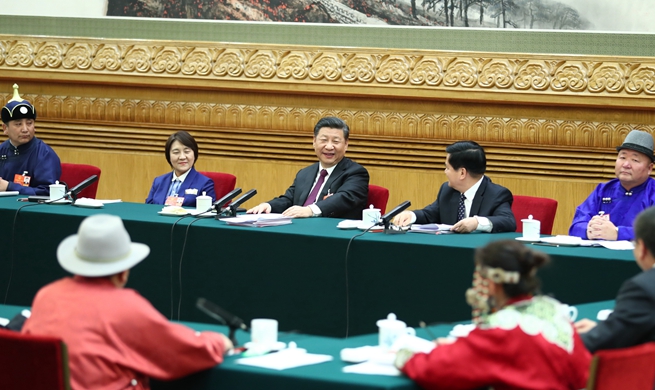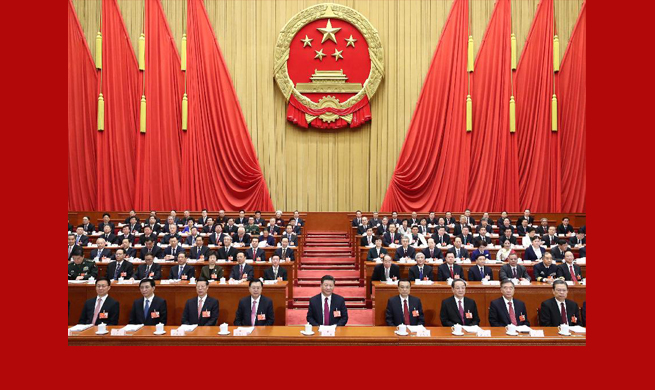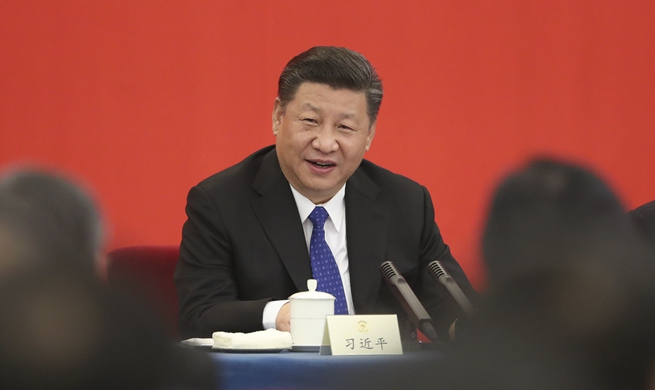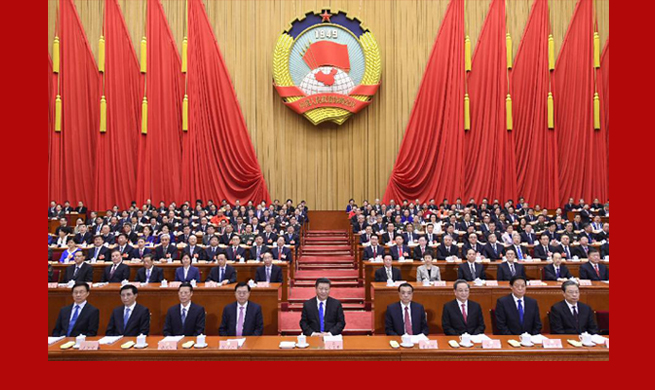BEIJING, March 7 (Xinhua) -- A number of countries have claimed that China has been stealing manufacturing jobs from them, but the facts tell a different story -- China is creating jobs for them.
Logically speaking, neither China nor any country else can "steal" jobs from the other countries, since each country creates its own job opportunities for its citizens basing on its economic development level.
China always abides by international trade rules, no matter when it was economically underdeveloped or now that it has grown stronger. It has chosen to work with trade partners to seek win-win results. As Chinese manufacturing enterprises expand their global presence, they hire more and more local employees.
As a case in point, Fuyao Group, China's leading manufacturer of automotive glass, had employed more than 2,000 people at a near-470,000-square-meter glass fabrication factory in Moraine, Ohio, by November 2017.
The Fuyao facility, the largest Chinese investment project in Ohio's history, has been widely hailed as a silver lining for the local community, as the closure of General Motor's assembly plant in 2008 wiped out thousands of jobs.
With Fuyao's further expansion in the United States, the company expects the employment number to grow by thousands.
Chinese companies invested over 20 billion dollars in the nine U.S. states in the midwest region as of 2016, creating over 45,000 jobs, according to China General Chamber of Commerce-U.S.A.
In Latin America, Chinese enterprises created 1.8 million jobs between 1995 and 2016, according to data from the International Labor Organization. The investment in sectors like food, communication, and renewable energy helped improve local infrastructure and consumption.
Through the Belt and Road Initiative proposed in 2013, China was adding jobs to Asian, European and African countries along the routes, while promoting infrastructure, trade, financial and people-to-people connectivity along and beyond the ancient Silk Road trade routes.
Under the Initiative, Chinese enterprises have invested roughly 50 billion U.S. dollars and helped build 75 economic and trade cooperation zones in 24 countries, generating over 209,000 jobs by October 2017, according to the Ministry of Commerce.
Looking ahead, more jobs are expected to be created by Chinese companies worldwide as Premier Li Keqiang said Monday in a government work report that China will expand industrial capacity cooperation with other countries, which enables Chinese manufacturing and services to go global.
Besides creating jobs overseas, China is also attracting many talented people from abroad to work on its territory for the country's manufacturing upgrading, given high-tech manufacturing has achieved an average annual increase of 11.7 percent during the past five years.
In 2016 alone, 1,576 foreigners in various careers became permanent residents in China, an increase of 163 percent over the previous year, according to the Ministry of Public Security
The country will surely solicit more talents from both home and abroad to build the country into a leader in manufacturing, given the government plans to promote the development of integrated circuits, 5G mobile communications, aircraft engines, new-energy vehicles, new materials and equipment manufacturing, among others.















